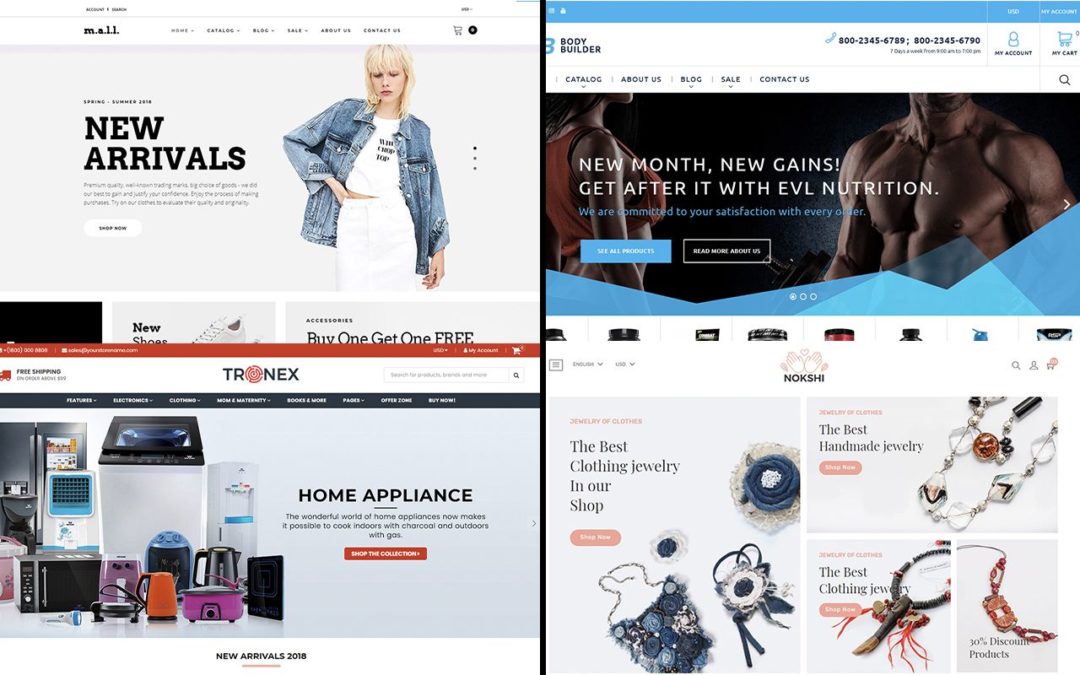For many years, computer scientists have predicted a future filled with intelligent robots and Artificial Intelligence (AI) but, until very recently, the tech involved in AI has spectacularly under-delivered on its promises.
Now, as we make our way through the third decade of the 21st century, AI is finally starting to live up to its potential and is making in-roads in all areas of our lives – from smart software on our devices to an ever-growing adoption across the internet and web applications.
The “intelligent” web is already here
AI is changing the web in ways never before thought possible, streamlining user experiences and giving rise to “intelligent” services capable of predicting user tastes and habits. As the sophistication of AI continues to improve and its knowledge of us as users increases, the tech has the potential to transform the internet from a largely one-way street into a platform wholly centred on delivering the best possible user experience.
AI isn’t just changing the internet – it’s also changing all facets of society as we know it. It’s thought around 60% of the workload in all current jobs could be performed better, quicker and more efficiently by tech. Experts predict this trend will only continue so if you want the best chances of staying employed in your current job, it might be an idea to study a masters in computer science online in your spare time to stay up to date with current trends. Having a qualification in computer-related studies will vastly increase your career stability and opportunities in the future.
Three ways AI is already changing the web – and the way we use it
While you may not realize it, you likely already make use of AI in a huge variety of websites and internet-based applications. For example, if you use Google Photos, you will have no doubt enjoyed the platform’s ability to sort your photos by content, place, time and even people. Google’s photo service is driven by complex AI and machine learning optical recognition algorithms capable of identifying and sorting objects, scenes, landscapes and faces.
Social media apps also use AI to deliver content they feel would be of most interest to you while streaming music apps like Spotify monitor users to make recommendations to their subscribers of what music tracks and genres might appeal to them most.
By using AI to gather, collate and examine user trends, these services can enhance the user experience and tailor content on a person-by-person basis. However, AI isn’t just being used to determine what content you might like – it’s also being used in a myriad of other ways online:
Big data is big business, particularly for online advertising providers
Most internet users understand there is an inherent tradeoff involved in using online services – after all, these companies need to cover costs and turn a profit just like any other and it would be impossible for them to simply offer their facilities for free. Running any data-based organization comes with huge overheads – everything from staff to servers and energy.
When we give companies the ability to monitor us, we also hand them the power to use that data (mostly for advertising purposes) and the personal details and information we share is worth millions of dollars. Machines are learning more about us every day – everything from the sites we visit the searches we make and the content we post online. Indeed, recent research has proven social media sites like Facebook now know you better than your family does.
Even everyday services like Google search and the company’s Chrome browser collate vast swathes of personal data to build individual user profiles which they can then use to tailor ad content. This is just the exchange we make in order to benefit from the tremendous service they supply and, as the scope and sophistication of AI continues to increase, we will see yet more personalization of the entire online experience.
A valuable insight into our shopping habits
The more an online store knows about you, the better equipped it will be to offer you products and services that are of interest. For example, if a store was able to analyze your Pinterest pins (for example, shoes, dresses, jackets, etc) and compared that data against your recent purchases and searches, an AI-powered shop assistant could collate the data and make accurate suggestions for what you might like to buy in future.
As the popularity of traditional high street shopping continues to decline - and more and more of us take to purchasing online – so we will see continued targeting of e-commerce operations to precisely predict our shopping tastes, based on a plethora of seemingly unlinked data sources. Data analysis on this scale and with this level of precision simply couldn’t be done by humans – it can only be achieved through the advanced intelligence and algorithms of AI.
Exercise, diet and lifestyle
In recent years, there has been a huge explosion in fitness wearables and web-based apps to help users attain and maintain their diet and fitness goals. Unlike a good friend who might shrug off the idea that you haven’t been to the gym or done any exercise for days, these apps will continue to remind you of your inactivity until you disable them. Likewise, a diet-tracker service will give you an impartial guide to what you’ve just eaten and the number of calories you’ve ingested.
It’s reckoned 80% of losing weight is down to eating the right food so inputting diet details into a website or web-based tracking app can help users shed pounds far quicker than going it alone and relying on their own willpower. All signs point to there being an increased integration of connected monitoring devices in the future in everything from our clothing to other wearables like bracelets, watches and jewellery.
In the End
AI is improving efficiency and productivity in all walks of life and as the popularity of smart online services continues to grow, so AI-powered sites and platforms will become an increasingly important and pivotal part of our lives, automating much of what we currently do manually and freeing up more of our time.



